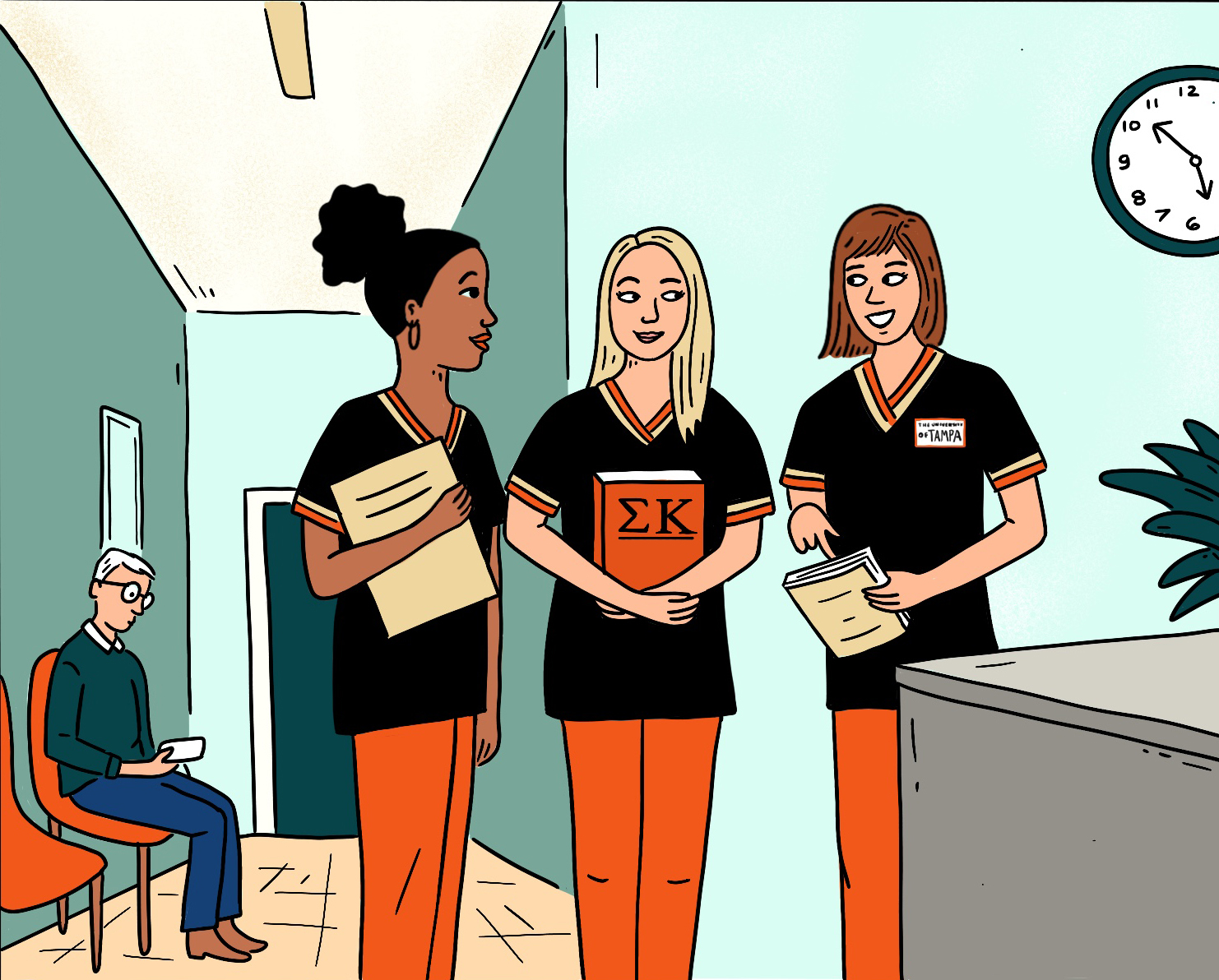Contact us
401 W. Kennedy Blvd.
Tampa, FL 33606-13490
(813) 253-3333
When recruiters and managers interview recent college graduates for open positions, of course, they want to make sure the candidates have gotten a quality college education. But beyond looking at majors and GPAs, they’re also wondering:

There are currently 25 groups: 13 sororities and 12 fraternities on UT’s campus. Illustration by Drue Wagner
And companies are noticing. “More and more employers are asking, ‘What do you do in your spare time?’” says Matt Battista, manager of employer relations in Career Services at UT. “Being a member of Fraternity and Sorority Life (FSL) means students are attending events, giving back to the community and sitting in meetings trying to change or update policies. It shows that you have the abilities — like managing your calendar and building quality habits — that they’re looking for, aside from grades.”

“More and more employers are asking, ‘What do you do in your spare time?’” says Matt Battista, manager of employer relations in Career Services at UT. “Being a member of Fraternity and Sorority Life (FSL) means students are attending events, giving back to the community and sitting in meetings trying to change or update policies. It shows that you have the abilities — like managing your calendar and building quality habits — that they’re looking for, aside from grades.” Illustration by Drue Wagner
Just ask Faith Kraus ’22, who is president of Sigma Kappa sorority and majoring in nursing. She has found those connections to be invaluable. “In the past, some seniors would lend me their old nursing textbooks and teach me how to study better. They told me how much time to spend on each topic and how to prepare for tests,” she says. Two of her sorority sisters were even at the same clinical site as she was, and they would pass along insider information, like tips on which nurses they had the best rapport with.
For Cleary, a cybersecurity major, the rush he got from volunteering left him wanting more. He not only joined the fraternity, but he’s now “Theta” or vice president of philanthropy for the group.

There are various ways to learn soft skills, but one organization that replicates a workplace is a fraternity or sorority. Illustration by Drue Wagner
That ability to shift gears quickly to solve problems is bound to serve the chemistry major well in whatever she decides to pursue next.
This story first appeared in the Spring 2022 UT Journal.
More UT News